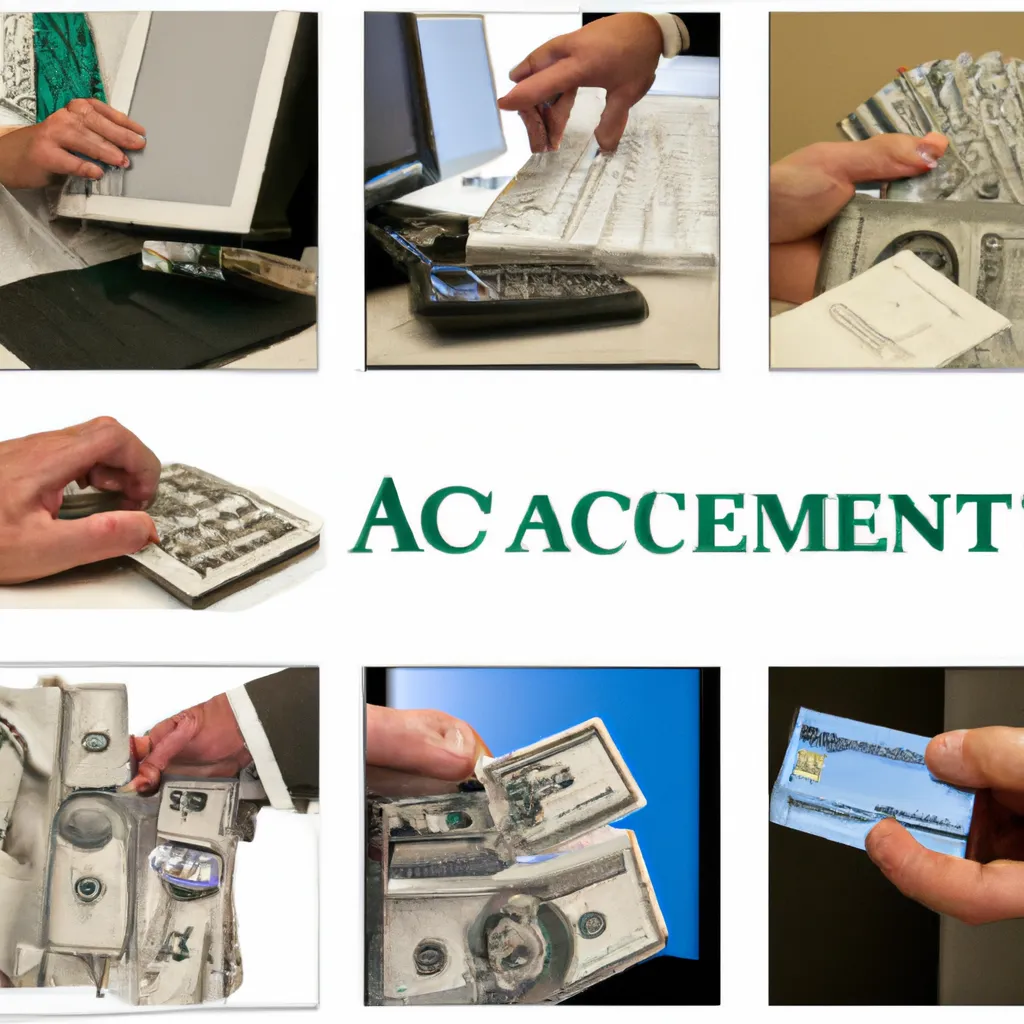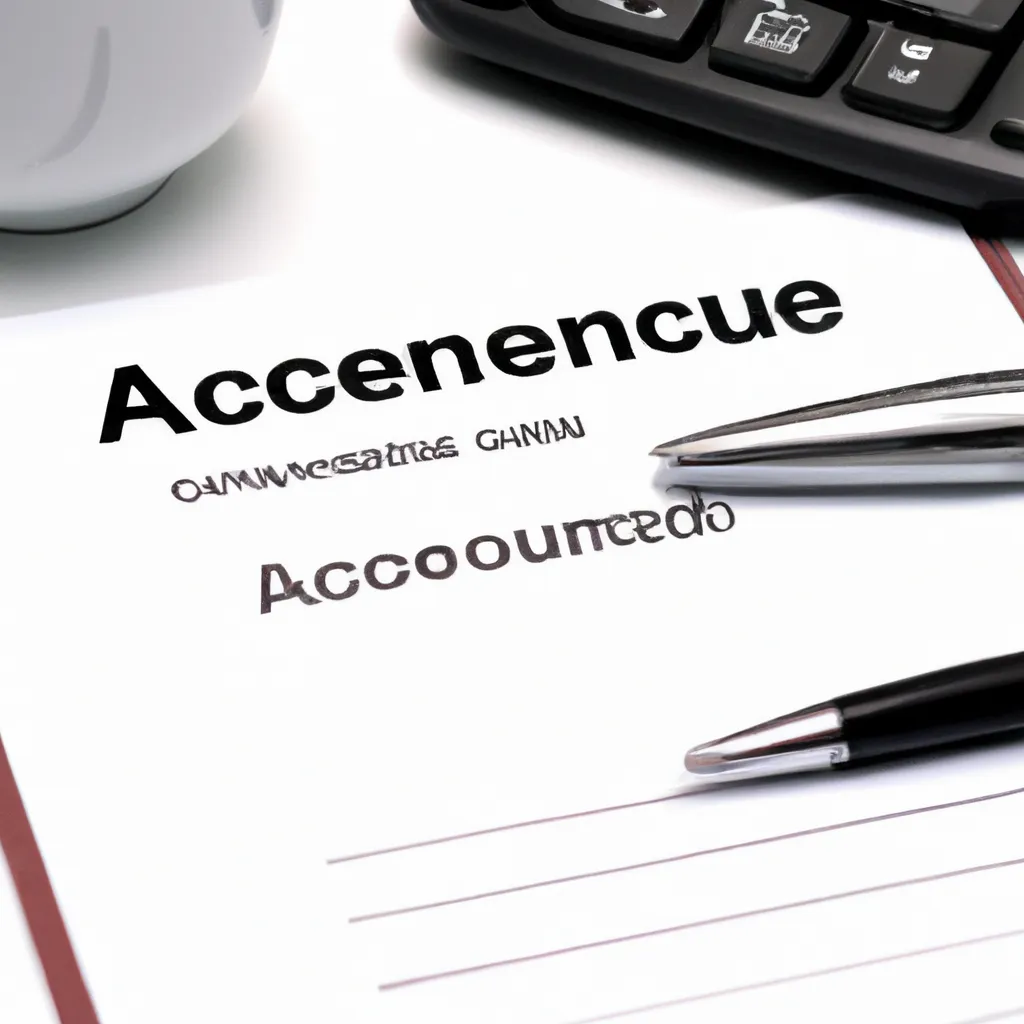Montreal Asset Management: Boost Your Business with Expert Accounts Receivable Strategies Are you looking to improve the financial health of your business. Do you struggle with managing your accounts receivable and suffer from a high level of bad debt. Look no further than Montreal Asset Management. Our team of experts specializes in implementing effective strategies to help businesses boost their cash flow and reduce bad debt.
But why take our word for it. With a proven track record of success and endorsements from respected industry professionals, Montreal Asset Management is the go-to choice for managing your accounts receivable. Did you know that according to a survey by Atradius, bad debt accounts for an average of 1.8% of total B2B sales in North America.
That's a significant loss for any business. Fortunately, with the expert strategies and services offered by Montreal Asset Management, you can mitigate the risk of bad debt and improve your cash flow. Our team works closely with clients to develop individualized plans that address their specific needs and goals. From credit analysis and invoice collection to dispute resolution and credit insurance, we have you covered.
Now is the time to take control of your accounts receivable and boost your business's financial health with Montreal Asset Management. With our team of skilled professionals and proven strategies, you can rest assured that your business is in good hands. Don't let bad debt hold you back any longer. Contact us today to learn more about how we can help you manage your accounts receivable and take your business to the next level.

Understanding your accounts receivable
As a business owner in montreal, managing your accounts receivable is a crucial aspect of your financial planning. This refers to the money that your customers owe you for the goods or services you have provided. Accounts receivable play a significant role in your business' cash flow and can have a direct impact on its profitability. In this article, we will take a closer look at the basics of accounts receivable and how it can affect your business.
Basics of accounts receivable
Accounts receivable are essentially the money that is owed to your business by your customers. This can include outstanding invoices, credit sales, or any other form of payment that has not been received yet. Typically, businesses offer credit to their customers, allowing them to pay for goods or services at a later date. This creates a legal obligation for the customer to pay the amount owed within a specified period, usually between 30 to 90 days.
Accounts receivable are recorded as an asset on your business' balance sheet as they represent potential income that is yet to be collected. While it may seem like a positive aspect of your business, having a significant amount of accounts receivable can also be detrimental if not managed properly.
Types of accounts receivable
There are two main types of accounts receivable – trade and non-trade. Trade accounts receivable refer to payments owed by customers for goods or services sold by your business. On the other hand, non-trade accounts receivable include any payments owed by your customers unrelated to your business, such as loans or investments.
It is essential to differentiate between the two types as they have different implications on your business' finances. Non-trade accounts receivable may not have as much of an impact on your cash flow, whereas trade accounts receivable can directly affect your business' liquidity and profitability.
The role of accounts receivable in the accounting period
The accounting period refers to the time frame in which your business' financial transactions are recorded. Managing accounts receivable is a crucial part of the accounting period as it can affect the accuracy of your financial statements. If not managed properly, it can lead to discrepancies in your records, ultimately affecting your business' financial health.
During the accounting period, it is essential to keep track of any new accounts receivable, payments received, and any adjustments made, such as bad debt write-offs. This information will be used to prepare your business' financial statements, including the balance sheet and income statement.
Accrual basis vs. Cash basis
Two primary methods of accounting are used to manage accounts receivable – accrual basis and cash basis. Accrual basis accounting involves recording transactions when they occur, regardless of when the money is received. This method is typically used by larger businesses with a significant amount of trade accounts receivable.
On the other hand, cash basis accounting involves recording transactions only when the cash is received or paid. This is a more simplified method and is often used by small businesses with minimal credit sales.
It is essential to understand the difference between the two methods and choose the one that is most suitable for your business. Both methods have their advantages and disadvantages, and it is important to consult with your accountant to determine which one is best for your business.
Managing accounts receivable is a crucial aspect of your business' financial planning. It is essential to have a clear understanding of the basics of accounts receivable and how it can impact your business' cash flow and profitability. By accurately recording and managing your accounts receivable, you can ensure the financial health and stability of your business in the long run. Be sure to consult with your accountant and consider implementing an efficient system for managing and tracking your accounts receivable for better financial management.

Maximizing your cash flow: tips for effective accounts receivable management
An introduction to accounts receivable and its importance
As a business owner in montreal, you understand that cash flow is essential for your company's success. Without a steady stream of cash, it can be challenging to keep your operations running smoothly, pay your employees, and make important investments. One factor that plays a significant role in your overall cash flow is your accounts receivable and how effectively you manage them.
Accounts receivable refer to the money owed to your business by your customers for products or services rendered. While having a high accounts receivable balance may seem like a positive sign for your business, it can quickly turn into a cash flow problem if these payments are not collected on time.
In this article, we will discuss some tips and strategies to help you maximize your cash flow by effectively managing your accounts receivable. By implementing these best practices, you can reduce the risk of late payments, maintain a positive cash flow, and even use accounts receivable to your advantage when managing tax payments, such as inheritance tax.
Tip #1: have a solid accounts receivable process in place
The key to effectively managing your accounts receivable is to have a solid process in place. This process should include clear and concise payment terms and procedures for collecting payments. Make sure to have these policies and processes clearly outlined in your contracts and agreements with clients.
Additionally, you should establish a system for tracking and monitoring your accounts receivable. This can include sending out regular invoices, following up with customers who have overdue payments, and keeping a record of all communications and payments received. By having a well-defined process, you can avoid confusion and disputes with your customers and minimize the risk of late payments.
Tip #2: incentivize early payments
One effective way to ensure timely payments is to incentivize your customers to pay early. Consider offering a small discount or other perks for those who pay their invoices before the due date. This not only encourages early payments but also helps maintain a positive relationship with your customers.
Another option is to offer multiple payment options, such as credit card, bank transfer, or electronic payment methods. This allows customers to choose the option that works best for them and can also speed up the payment process.
Tip #3: stay on top of aging accounts receivable
As a responsible business owner, it is crucial to regularly review and analyze your aging accounts receivable. This refers to the length of time that an invoice has been outstanding. By staying on top of aging accounts, you can quickly identify any potential issues and take necessary action to collect payments before it's too late.
Make sure to have a system in place for tracking overdue payments and following up with customers. You can also consider setting up automatic reminders for customers with overdue payments to avoid any missed opportunities.
Tip #4: utilize accounts receivable to manage tax payments
While managing your day-to-day cash flow is essential, accounts receivable can also serve as a valuable tool for managing tax payments, such as inheritance tax. By claiming old unpaid invoices as bad debts on your tax return, you can potentially lower your taxable income and save on taxes.
However, it is crucial to consult with a tax professional to ensure you are following all proper procedures and documentation requirements when using accounts receivable for tax management purposes. This strategy can be an effective way to maximize your cash flow and minimize your tax liability.
In summary, effectively managing your accounts receivable is crucial for maintaining a positive cash flow and ensuring the success of your business. By having a clear process in place, incentivizing early payments, staying on top of aging accounts, and utilizing accounts receivable for tax management, you can maximize your cash flow and keep your business thriving.
Remember to regularly review and analyze your accounts receivable process and make any necessary adjustments to ensure it is working effectively. By implementing these best practices, you can position your business for long-term success and financial stability.

Expert tips for accounts receivable management
Get insider tips from montreal asset management
When it comes to managing accounts receivable, efficiency and organization are key. As a business owner, you want to ensure that you are receiving timely payments and keeping track of all your open invoices to avoid any financial setbacks. In order to streamline your accounts receivable process, we have gathered expert tips from montreal asset management to help you optimize your accounts receivable management.Know your accounts receivable aging
The first step to successful accounts receivable management is understanding your accounts receivable aging. This refers to the process of tracking your outstanding invoices and categorizing them by their due dates. By knowing which invoices are past due, you can allocate your resources and prioritize collection activities. It is important to regularly review your aging report and take necessary actions to collect overdue payments.Set clear and reasonable payment terms
One of the most common mistakes businesses make in managing accounts receivable is not setting clear and reasonable payment terms. It is important to clearly state your payment terms and expectations to your customers before providing any goods or services. Setting clear and reasonable payment terms will help avoid payment disputes and reduce the risk of overdue payments.Invest in an efficient billing and invoicing system
Investing in an efficient billing and invoicing system can greatly aid in your accounts receivable management. An automated system can help reduce errors and save time in generating and sending invoices. It can also provide customized reports to help you track your accounts receivable aging and identify any potential issues. Montreal asset management recommends regular updates and upgrades to ensure a smooth flow of your accounts receivable system.Follow up on invoices promptly
Another crucial aspect of managing accounts receivable is prompt follow-up on invoices. As soon as a payment becomes due, make sure to reach out to your customers through phone calls, emails, or even in-person visits. By following up promptly, you send a message that timely payment is important to you and increases the chances of receiving payment on time.Offer incentives for early payment
To encourage your customers to make timely payments, consider offering incentives for early payment. These incentives can include discounts, extended warranties, or complementary services. Not only will this help you get paid faster, but it will also foster good relationships with your customers.Outsource your accounts receivable management
If managing accounts receivable is becoming overwhelming or it is not your area of expertise, consider outsourcing to a professional agency. Montreal asset management offers accounts receivable management services to help businesses streamline their cash flow and minimize the risk of bad debt. This will also free up your time to focus on other important aspects of your business. By implementing these expert tips for managing accounts receivable, you can streamline your accounts receivable process and ensure timely payments from your customers. Remember to regularly review your accounts receivable aging report, set clear payment terms, invest in an efficient billing system, promptly follow up on invoices, offer incentives for early payment, and consider outsourcing to a professional agency. With these best practices, you can reduce the risk of overdue payments and improve your cash flow management.Transforming your business with montreal asset management
In today's fast-paced business world, managing accounts receivable can be a complex and time-consuming task. This is especially true for businesses in montreal, where there is a constant need to balance financial responsibilities and drive growth. That's where montreal asset management comes in.
Montreal asset management is a leading provider of accounts receivable management services in montreal. With a team of expert professionals, they offer customized solutions to help businesses optimize their cash flow, reduce outstanding balance and ultimately, transform their business. In this article, we'll dive into the world of accounts receivable management and explore how montreal asset management can help businesses like yours achieve greater success.
The importance of accounts receivable management
As a business owner, you may be wondering what exactly accounts receivable management entails and why it's so important. Simply put, accounts receivable management involves overseeing and collecting payments from customers who owe your business money for goods or services provided. This process is crucial for maintaining a healthy cash flow and ensuring that your business remains financially stable.
However, managing accounts receivable can present several challenges for businesses, such as slow-paying customers, late payments, and unpaid invoices. This can create a domino effect, impacting your ability to pay bills and invest in growth opportunities. That's where montreal asset management can step in and help.
Customizable solutions for your business
One of the key ways montreal asset management stands out is through their customizable solutions for businesses of all sizes and industries. They understand that each business has unique needs and goals, and therefore, offer customized services to fit those specific requirements. Here are some of the core services they offer:
Invoice factoring
Montreal asset management offers invoice factoring services, where they purchase your accounts receivable at a discounted rate and advance you a portion of the total amount. This can provide immediate cash flow for your business, allowing you to pay bills and invest in growth opportunities without the stress of waiting for slow-paying customers.
Debt collection
If you're dealing with delinquent accounts, montreal asset management can help with their debt collection services. They have a team of experienced professionals who work diligently to collect outstanding payments, freeing up your time and resources to focus on other aspects of your business.
Credit management
Handling credit management can be a daunting task, especially for businesses with limited resources. That's where montreal asset management comes in, offering a range of credit management services to help businesses effectively manage their credit and minimize potential risks.
The benefits of outsourcing accounts receivable management
Outsourcing accounts receivable management to an experienced and trusted team like montreal asset management can provide numerous benefits for businesses:
- efficiency: outsourcing allows businesses to focus on core tasks and leave the time-consuming accounts receivable management to the experts.
- expertise: montreal asset management's team of professionals has years of experience and industry knowledge, ensuring efficient and effective handling of your accounts receivable.
- cost savings: outsourcing accounts receivable management can save businesses on the costs of hiring and training their own in-house team.
- improved cash flow: with timely and effective management of accounts receivable, businesses can improve their cash flow and financial stability.
- less stress: by handing over the responsibility to an experienced team, business owners can have peace of mind and reduce stress in managing accounts receivable.
Accounts receivable management may seem like a daunting task, but with the help of montreal asset management, businesses in montreal can transform their financial processes and achieve greater success. With customizable solutions and expert services, outsourcing accounts receivable management has never been more beneficial. So why wait? Explore the services offered by montreal asset management and take the first step towards optimizing your business' financial health.

